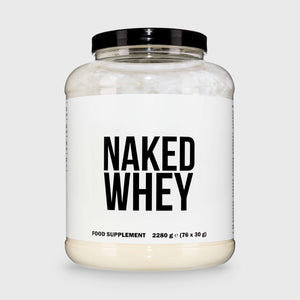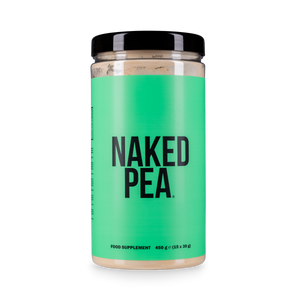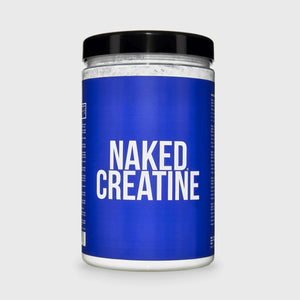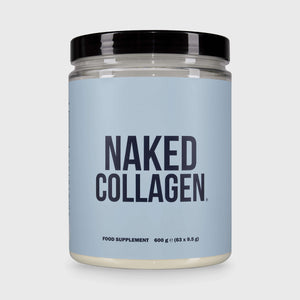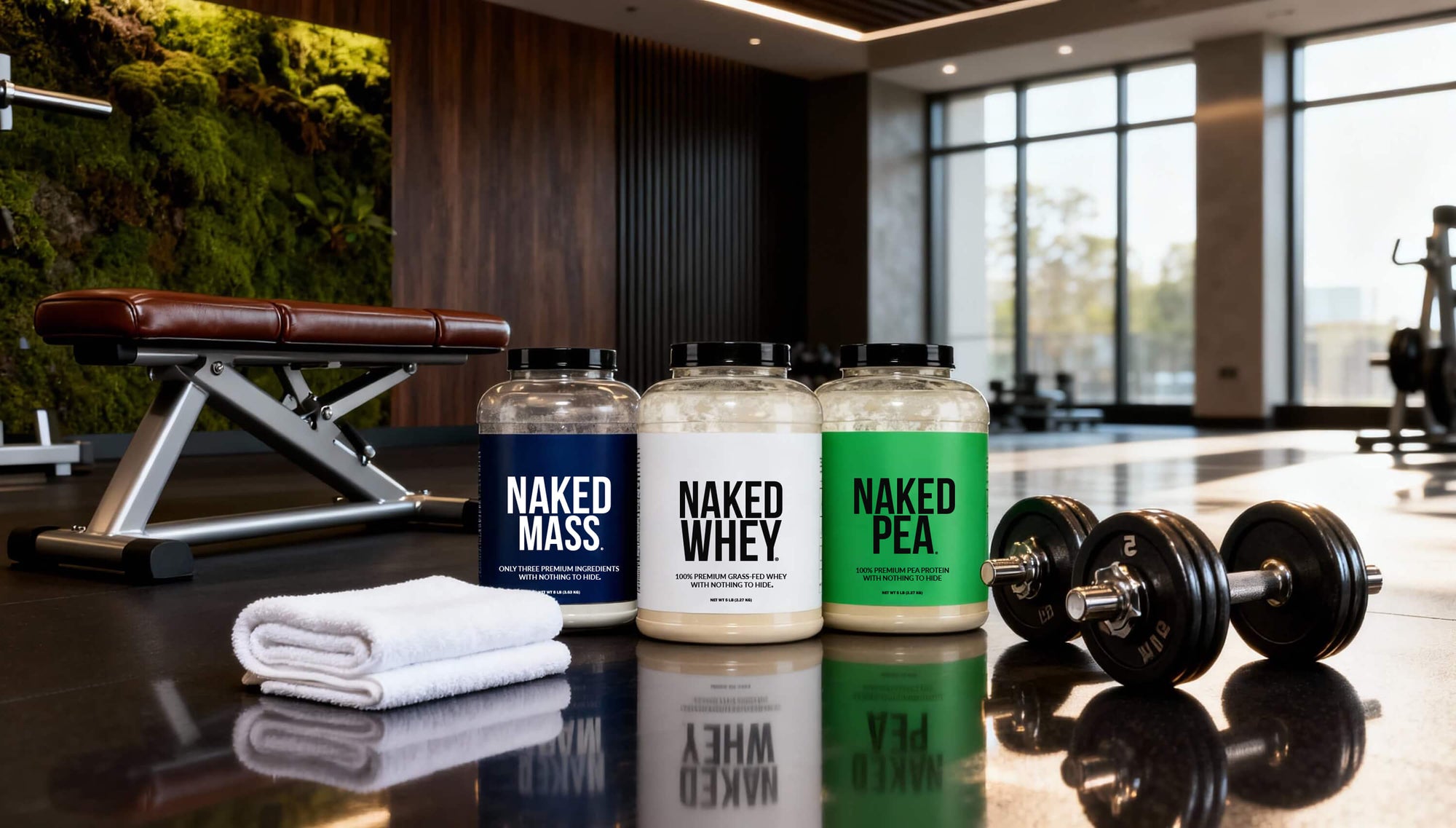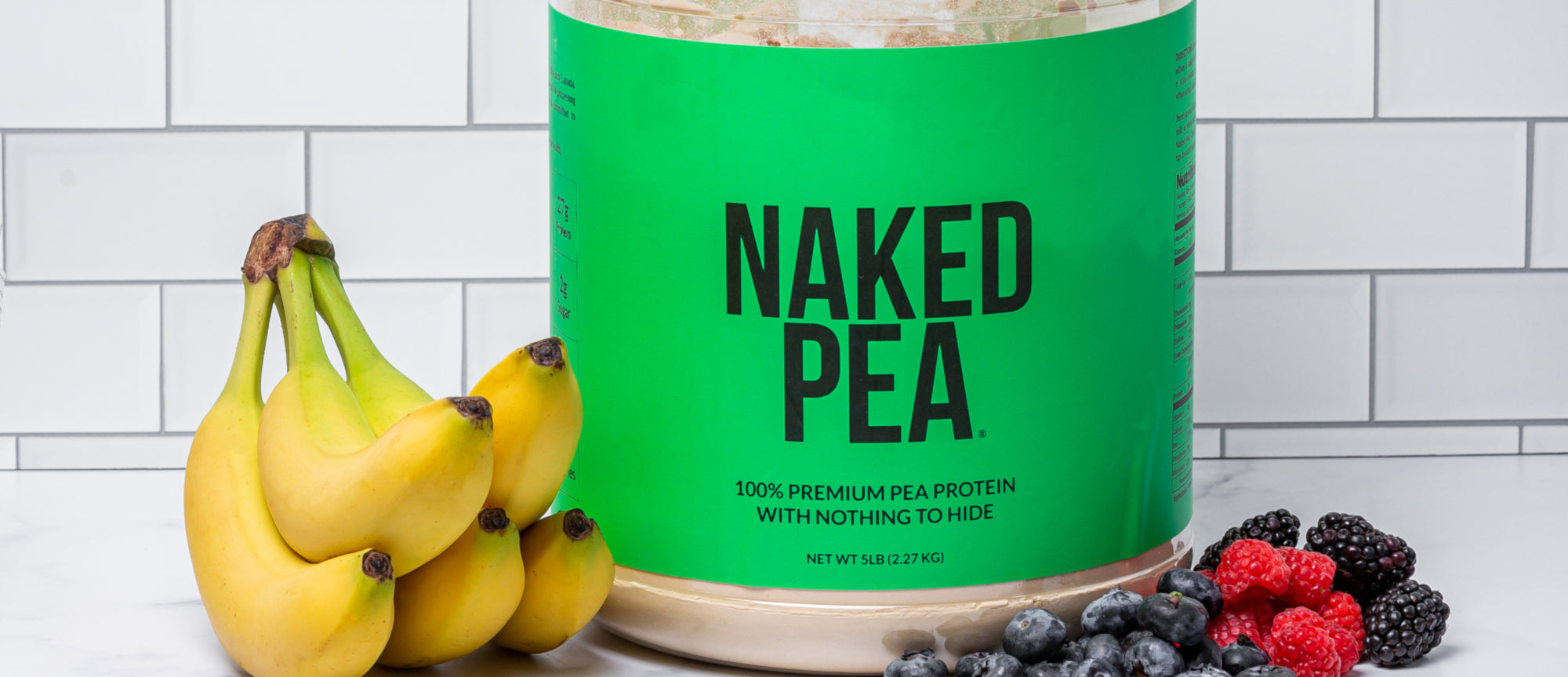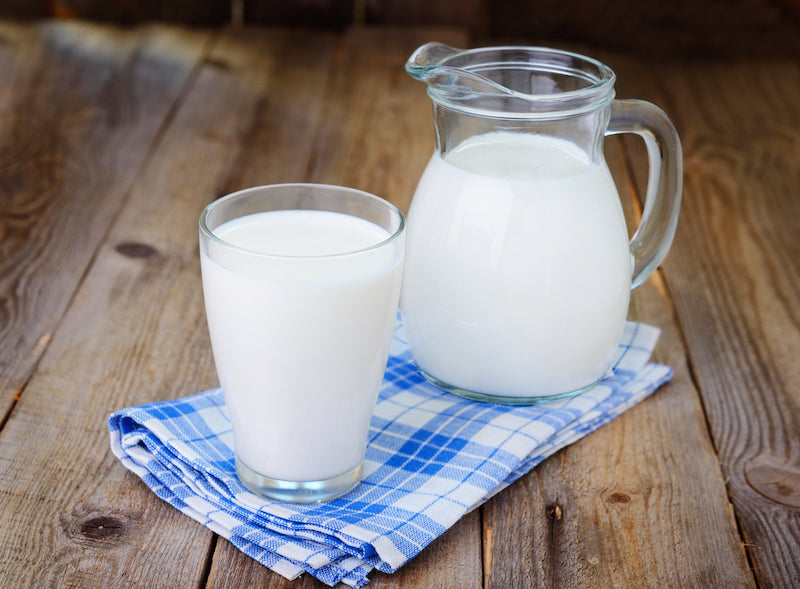There are a couple common forms of whey protein: whey protein isolate and whey protein concentrate.
If you're currently taking either of these types of whey protein, you might be wondering if you've chosen the correct dietary supplement for your nutrition goals.
When it comes to concentrate vs isolate, there are nutritional differences that largely have to do with how they are processed. Keep reading for more on the the different types of whey protein and the best form for you.
Key Takeaways: Whey Protein Isolate vs Concentrate
-
Whey concentrate is around 80% protein, the rest is made up of other components including carbs, fats, and other nutrients.
-
Whey isolate is usually 100% whey protein with no other macros.
-
Both types deliver all nine essential amino acids.
-
Whey isolate is usually better for those who are lactose intolerant.
-
Whey isolate also has higher protein density per serving and calorie.
-
Both forms provide all three branched chain amino acids (BCAAs).
Why People Take a Whey Protein Supplement
Dietary supplements can be a great way to increase the protein content of your diet and support your fitness goals. It can be difficult to get enough protein with just food when you're trying to build lean muscle mass.
That's why protein supplementation by way of protein powders are so popular in the fitness community. But there are so many different kinds of protein powder available that it can be hard to know which one is right for you.
Is there one that's better for before or after a workout? Is there one that's best for building muscle or losing weight?
If you've ever found yourself asking these questions, keep reading to learn about one of the most popular types of protein used in supplements, whey protein.
How is Whey Protein Made? Whey Isolate vs concentrate

Whey protein is used in many supplements, including bars, powders, and drinks.
Both whey isolate and whey concentrate come from cow's milk. It makes up about 20% of the protein in milk, and casein makes up the other 80%.
Whey is the liquid portion of cow's milk that remains during the process of making cheese and yogurt, and it contains proteins that are quickly digested and absorbed by the body.
Because this protein is quickly digested, it is the G.O.A.T. when it comes to protein for building muscle.
The main difference between whey isolate and concentrate has to do with processing methods.
Since the methods used in their processing are different, each of these types of protein has a different nutritional value.
Whey Protein Isolate vs Whey Protein Concentrate: Processing

When discussing isolate vs concentrate, a main topic to distinguish the two has to do with processing.
Whey isolate undergoes a more intense filtration process, yielding a higher protein product.
After the liquid whey is separated during the cheese-making process, it goes through additional processing to increase its protein content. The curds on the other hand are made of mostly milk fat, and this portion is used to make cheese while the rest is used for whey.
After it is processed, it is dried to the form of powder called whey isolate which contains about 80% protein. Some methods of processing can produce a product that contains up to 90% protein by weight.
The other 10-20% that remains after processing is concentrate, which has a higher carbohydrate and fat content compared to isolate.
Both forms are dehydrated into a whey powder that is used in supplements.
Best Option for Lactose Intolerance
In addition to having fewer carbohydrates and fat, isolate is also lower in lactose than whey isolate. If you are lactose intolerant or sensitive to lactose, opting for an isolate can prevent any symptoms of lactose intolerance.
Regardless, the lactose content of both forms is pretty low, so often they are both tolerated well in those with lactose sensitivity.
The key difference between isolate and concentrate is that whey isolate goes through more processing, providing a higher protein content with less fat and carbohydrate.
Both isolate and concentrate:
-
Help you increase your protein intake
-
Are considered a high quality protein source
-
Help you build muscle
-
Increase anabolic hormones
What are the Benefits of Whey Protein?

There are several benefits to consuming whey isolate and concentrate protein. The protein in general is very nutrient-dense and is one of the best dietary sources of high-quality protein. It is highly digestible and absorbed quickly compared to other proteins.
There is substantial evidence showing that whey protein powder provides health benefits for active people who are into fitness or building muscle.
Researchers have concluded that active people who took whey protein supplements, containing both forms of whey had a notable increase in lean body mass (fat-free muscle) and strength.
Each protein powder has also been found to be effective in preventing age-related muscle loss and improving strength.
That's because they're both considered a complete protein providing all of the building blocks needed for muscle protein synthesis.
Some studies show that these protein powders may be slightly better for muscle growth than other types including casein and soy.
Drinking whey protein may help lower blood pressure in people with high blood pressure because of the bioactive peptides called lactokinins that it contains.
It may also be effective at regulating blood sugar levels, particularly when taken before or with high-carb meals.
Whey Protein Isolate vs. Concentrate: Which One Has The Most Protein

Both whey protein isolate and whey concentrate are made from the same protein (milk) and provide complete sources of protein.
Plus, whey protein isolate and concentrate both contain the same amino acids, including BCAAs.
A 100-calorie serving of whey protein isolate contains 23 grams of protein, while a 100-calorie serving of whey concentrate contains 18 grams of protein.
If you look at protein differences for calorically equivalent servings, whey protein isolate contains higher amounts of protein.
Check out our grass-fed whey isolate protein powder sourced from New Zealand.
Therefore, when looking at whey isolate vs concentrate, whey protein isolate offers more protein per serving.
Which One Is Higher In Calories?
One difference between whey protein concentrate is that it has more calories per serving than isolate. It also has a higher fat and carbohydrate content compared to isolate, which has a lower fat and carbohydrate content.
If you compare a 30-gram serving of each, whey isolate is less calorically dense, but the difference is marginal. Whey protein provides 120 calories for a 30-gram serving, while whey isolate has 110 calories per 30-gram serving.
As you can see, the caloric difference is negligible, so calories probably wouldn't be a huge factor in determining which one you should buy, as long as you get enough whey protein per day.
Is Whey Isolate Better Than Regular Whey?

There isn't a reason to believe that whey isolate protein is better than regular whey, which often contains whey protein concentrates or a blend of the two.
The amino acid profile of both are virtually identical, so both kinds can build and repair muscle, undergo similar muscle protein synthesis, and support the processes in your body just as well.
You may want to choose whey protein isolate if you are seeking a lower fat diet, or are limiting carbohydrates or lactose. However, if cost is a concern, whey protein concentrate offers a more affordable option. Also, if you prefer fruity flavors with a less milky taste or texture, you may opt for whey isolate instead of whey protein concentrate.
Although whey protein isolate has a larger percentage of protein than whey concentrate by weight, a larger scoop of whey concentrate can provide just as much protein as whey isolate, often at a lower cost.
It doesn't matter which type you use, because whey is a high-quality protein that will help you reach your daily protein goals.
Whey Concentrate vs Isolate After a Workout
Although the protein content of whey isolate is higher than that of whey concentrate, whey concentrate is more bioavailable, which means it is digested more quickly.
Muscle is built after a workout, so it's important to provide your body with easily-digested protein to help repair the muscle breakdown during your workout.
Comparing whey protein supplement options, since whey concentrate is more bioavailable than whey isolate, you should take whey concentrate after a workout.
Protein shakes are a common way to consume whey protein after a workout. If you're looking for an option with fewer calories, whey isolate is your better bet. However, regardless of which form of whey you choose you can be assured you're getting a high protein quality to fuel your muscles after exercise.
Whey Isolate vs. Concentrate: The Verdict

Both types of whey protein are excellent ways to increase your daily protein intake. While whey isolate is slightly higher in protein, the difference is pretty negligible and there may not in fact be a superior choice.
Whey products that are in concentrate form often cost less than whey isolate because it goes through less processing. If cost is a factor, you may want to choose whey concentrate. If you are looking to cut down fat and carbs from your diet, you should choose a 100% whey protein isolate like Clear Naked Whey because it has little to no carbs and fat.
You can't go wrong choosing isolate or concentrate as they will both help build muscle and support your fitness goals.
However, if you are someone who avoids dairy products such as whole milk, it might be optimal to seek a high quality plant based protein option to suit your dietary needs and preferences.
The best whey for you is unique to your body and individual needs. If you're looking for something with a lower lactose content that is quickly absorbed, isolate might be best for you. On the other hand, if you're looking to be in a calorie surplus, whey concentrate might be best.
